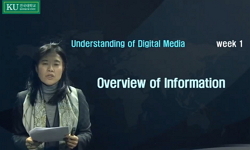Purpose: Since the COVID-19 pandemic, virtual simulation practice has been increasingly activated as an alternative to clinical practice in nursing colleges. This study aimed to provide basic data by confirming changes in self-efficacy and nursing kno...
http://chineseinput.net/에서 pinyin(병음)방식으로 중국어를 변환할 수 있습니다.
변환된 중국어를 복사하여 사용하시면 됩니다.
- 中文 을 입력하시려면 zhongwen을 입력하시고 space를누르시면됩니다.
- 北京 을 입력하시려면 beijing을 입력하시고 space를 누르시면 됩니다.

Effect of Virtual Simulation Practice for Nursing Students: Focusing on Virtual Presence and Virtual Patient Learning System Evaluation (VPLSE)
한글로보기https://www.riss.kr/link?id=A108199326
- 저자
- 발행기관
- 학술지명
- 권호사항
-
발행연도
2022
-
작성언어
English
- 주제어
-
KDC
512
-
등재정보
KCI등재
-
자료형태
학술저널
-
수록면
89-102(14쪽)
- DOI식별코드
- 제공처
-
0
상세조회 -
0
다운로드
부가정보
다국어 초록 (Multilingual Abstract)
Purpose: Since the COVID-19 pandemic, virtual simulation practice has been increasingly activated as an alternative to clinical practice in nursing colleges. This study aimed to provide basic data by confirming changes in self-efficacy and nursing knowledge in the virtual simulations of nursing students, and identifying virtual presence, virtual patient learning system evaluation (VPLSE), and practical satisfaction. Methods: This was a single-group pre-post quasi-experimental study. The subjects were 28 third-grade nursing students. Results: Self-efficacy and nursing knowledge increased significantly (p<.001). Virtual presence had a significant positive correlation with VPLSE) (p=.002) and practice satisfaction (p=.011). There was also a significant positive correlation between virtual simulation learning evaluation and practice satisfaction (p<.001). Conclusion: Based on these results, virtual simulation practice can be used with clinical practice as an educational method to improve nursing students' self-efficacy and nursing knowledge in nursing education. Virtual presence was confirmed as a significant variable to improve practice satisfaction and VPLSE. It is necessary to develop a virtual simulation program that can improve virtual presence through collaboration with virtual reality technology experts.
목차 (Table of Contents)
- ABSTRACT
- Ⅰ. Introduction
- 1. Background
- 2. Purpose
- Ⅱ. Methods
- ABSTRACT
- Ⅰ. Introduction
- 1. Background
- 2. Purpose
- Ⅱ. Methods
- 1. Research design
- 2. Participants
- 3. Instruments
- 4. Data collection
- 5. Data analysis
- 6. Ethical consideration
- Ⅲ. Results
- 1. General and Virtual simulation practicerelatedcharacteristics
- 2. Self-efficacy and nursing knowledge
- 3. Correlation among virtual presence, VPLSEand practice satisfaction
- Ⅳ. Discussion
- Ⅴ. Conclusion andRecommendation
- References
동일학술지(권/호) 다른 논문
-
COVID-19 팬데믹 상황에서 가상 시뮬레이션을 활용한 아동간호학 실습경험
- 한국간호시뮬레이션학회
- 이혜림
- 2022
- KCI등재
-
NLN Jeffries Simulation 이론에 근거한 간호대학생의 시뮬레이션기반 실습교육 구조모형
- 한국간호시뮬레이션학회
- 이지영
- 2022
- KCI등재
-
간호대학생의 온라인 실습 경험에 대한 인식 및 유형 분석
- 한국간호시뮬레이션학회
- 이종란
- 2022
- KCI등재
-
시뮬레이션 기반 의사소통 교육이 간호대학생의 문제해결과정, 의사소통 자기효능감 및 의사소통능력에 미치는 효과
- 한국간호시뮬레이션학회
- 박수진
- 2022
- KCI등재




 KCI
KCI 코리아스칼라
코리아스칼라






